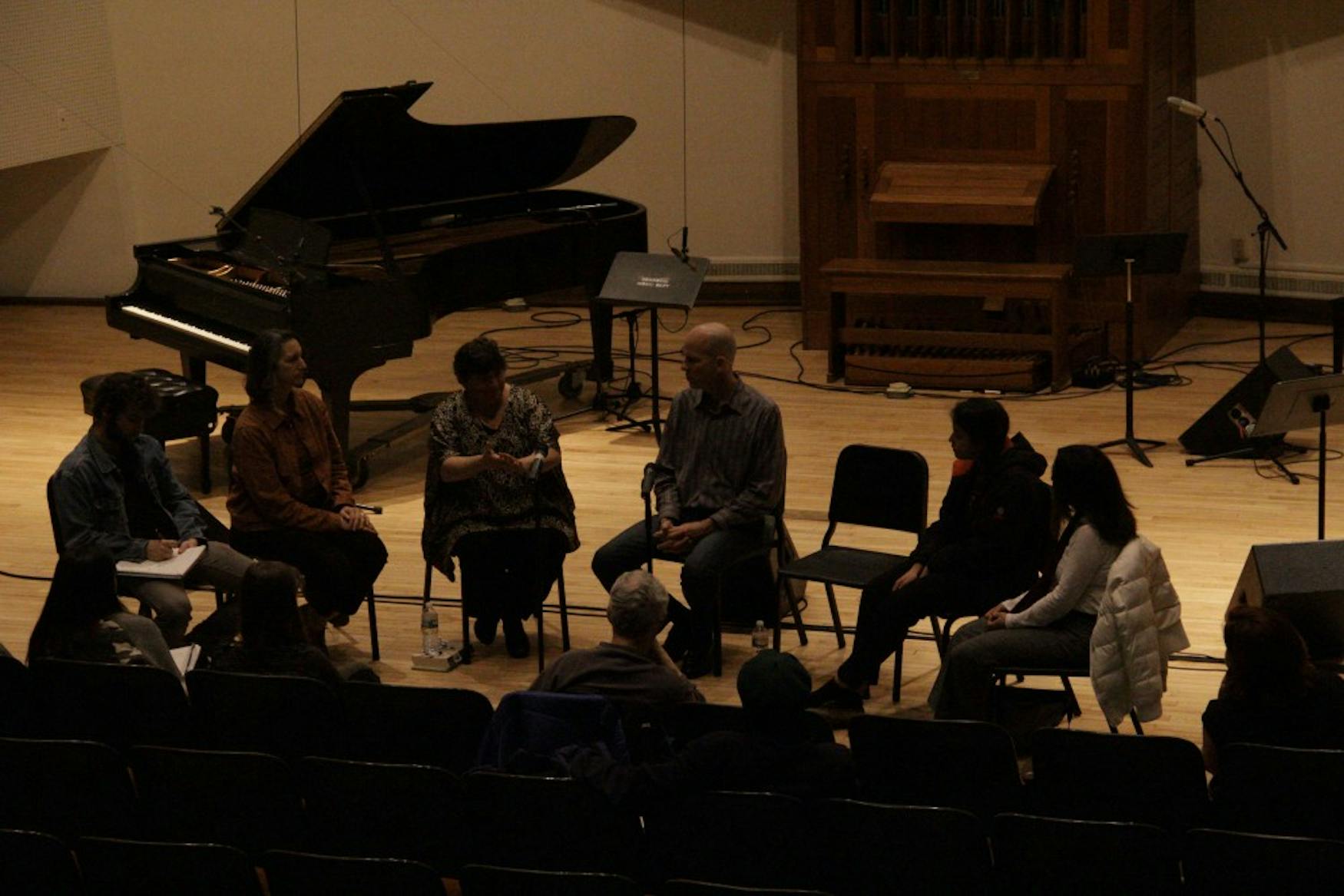Talk bridges improvisation and justice
On Friday, a small group of students and staff sat in the first few rows of the Slosberg Concert Hall to listen to a discussion about improvisation. The talk touched on how improv related to people’s daily lives, to activism and ultimately how improvisation allows people to deal with challenges in a productive way. The discussion focused on the process of improvisation and how it is similar or dissimilar to the way people attempt to enact social change. Prof. Tom Hall (MUS) and Cynthia Cohen, director of the University’s Ethics Center’s Program in Peacebuilding and the Arts, came together to discuss how their departments overlapped and what this could mean in the context of improvisation and social change.
A lecturer in music at the University and author of Free Improvisation: A Practical Guide, Hall was clearly a good choice to discuss how musicians and everyday people can incorporate or notice improvisation in their lives. He writes and lectures on improvisation and teaches the class “Improv Collective” for the music department. And Cohen helped speak to the social justice aspect of the talk and related improvisation to activism in novel ways. She has written on the ethical dimensions of peacebuilding and worked as a dialogue facilitator with communities in the Middle East, Sri Lanka, Central America and the United States prior to her tenure at Brandeis.
The pair opened the discussion by noting that they had not planned their remarks, and in that sense the discussion itself was a form of improvisation. Hall mentioned that in improvisation, both the performers and the viewers are equally involved in the experience, which encouraged the audience to participate in the discussion by commenting and asking questions of the speakers.
To introduce improvisation’s relationship to larger themes, Hall made the broad statement that people improvise their lives. He elaborated to say that he defines improvisation as “the innate human ability to take knowledge and understanding and combine it with current materials to create something.”
Hall noted that he considers the process of improvisation as integral to humanity and humans as rationale or reasoning. Moreover, he said that it is the that process which allows people to understand things previously unknown to them, emphasizing improvisation’s role in human understanding.
Cohen commented on this point, mentioning that in the context of creating meaning or understanding out of the unknown, improvisation allows for many ways of constructing meaning. She explained that, for instance, in a visual medium of improvisation, the meaning is constructed by the partnership between the artists and the viewers. Their analysis of visual works give the works meaning in addition to the meaning the artists create.
Cohen also noted that this process of internalizing another person’s ideas and using them to draw new conclusions relates well with the concepts of empathy and social justice. Just as improvisation requires people to extend their ideas, so too do empathy and social activism require people to extend their thoughts and experiences in order to gain an understanding of new situations.
Similarly, Hall remarked that improvisation puts people in a certain mindset where they have to use their surroundings and rely on others. This creates a framework of being open to new possibilities. In terms of social justice, being open to new viewpoints is a key component of understanding controversial issues.
Cohen agreed, noting that improvisation strengthens a person’s capacity to listen, which is a main tenent of social understanding and dialogue.
During the question and answer session, an audience member asked how the speakers deal with polarizing or controversial situations as artists. Cohen answered the question and related it to the subject of dialogue. She mentioned a time when she was working on a folklore piece with Israeli and Palestinian participants. Despite the apolitical goal of the project, its inherently political nature led to a unique dynamic.
Toward the end of the talk, Hall noted the relationship between one’s ability to improvise and deal with the unexpected and happiness. Commenting on this relationship, Hall said that the better people are at improv, the happier people can be.




Please note All comments are eligible for publication in The Justice.